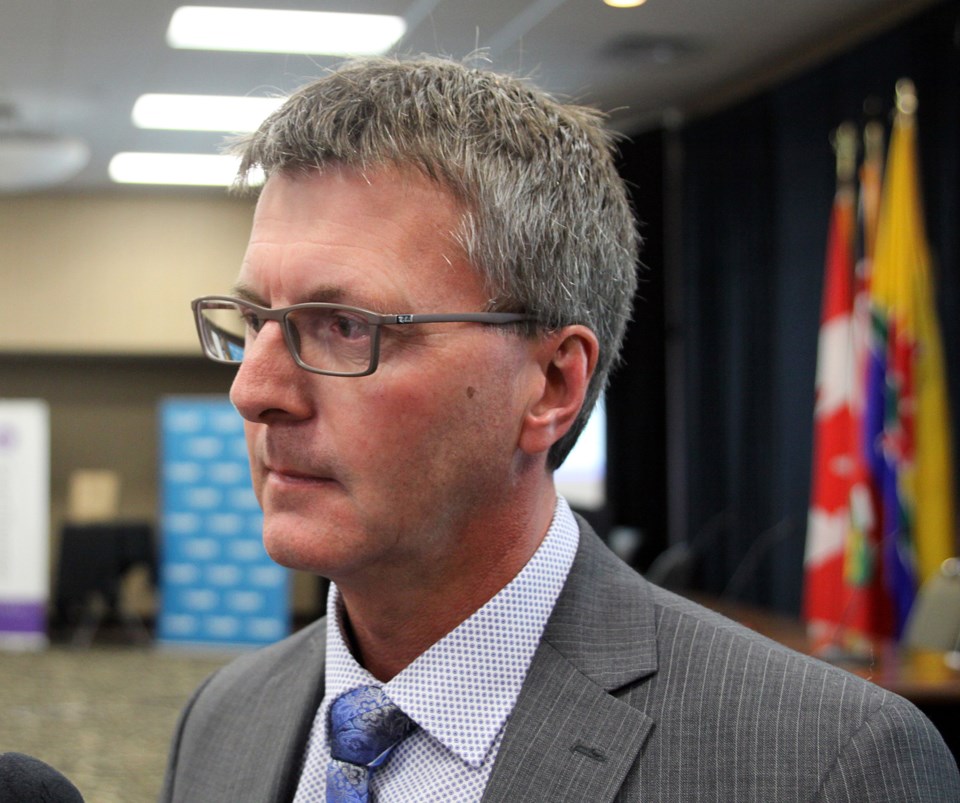THUNDER BAY – While an upcoming review of the province’s social services administration boards is welcomed by regional municipal leaders, there are concerns it won’t go far enough.
The Ontario Ministry of Community and Social Services will be undertaking a review of the 10 district social services administration boards, with a final report expected by the end of the year.
According to a presentation made by the ministry’s Anna Cain at the Northwestern Ontario Municipal Association conference on Wednesday, that examination will address how municipal levies are calculated as well as the composition and transparency of the boards. Guiding principles will include clear roles and responsibilities for member municipalities and the boards, accountability for local social services, a transparent process with a conflict resolution mechanism, ability to respond to change and financial sustainability.
It’s about time, said Conmee mayor Kevin Holland, whose township is a member of the Thunder Bay District Social Services Administration Board along with five other surrounding area communities that are known as Area One municipalities.
“All of the issues that have been identified or topics that are going to take place in the review are really what Area One has been advocating for over the past five or six years,” Holland said. “To see us finally being able to sit down and have meaningful conversation with regards to the issues that we’ve been working on for all these years is encouraging.”
Leaders of the Area One municipalities have been vocal over the past number of years about a perceived imbalance over a lack of representation on the board and the proportionally high costs each is charged.
A 2014 consultant’s report found the Area One municipalities spent $2.1 million more per year more than the value of services they received.
Earlier this year the province announced the group will have two additional seats on the board, though the municipalities had requested three.
Holland has previously called for the establishment of a separate rural DSSAB, though the province said they aren’t looking to expand the number of boards across Ontario.
“I think all things need to be left on the table in this review process and that does include separate urban and rural boards,” Holland said.
“The issues in rural Ontario are vastly different than the issues in urban Ontario and to have boards coexisting trying to adjust those issues, there’s always going to be conflict. Is having a separate rural and urban board a better makeup? Possibly, but it’s something I want to make sure is left on the table for discussion during the review process.”
Thunder Bay Coun. Iain Angus, who is also chair of the Northern Ontario Service Deliverers Association, said there are legislative conflicts between the Ontario Municipal Act and the DSSAB Act, which he hopes the review will clarify.
“One allows us to do things a certain way while the other one says no, you have to do it this way,” Angus said. “We just need to fix a fairly old act that’s 17 years old now. We’re glad the province is doing this.”
But Angus is not satisfied with the scope of the review, which will not add or remove mandated services from the boards or make any changes to provincial funding for those services.
“The key thing that’s not part of the review – that is out of scope – is what Ontario pays for,” Angus said.
“Certainly we’ve seen in a number of areas that a lot of the angst from some of the communities is over the bill they have to pay for social housing, most of which is not in their community. That’s because Ontario now pays zero towards the operation of social housing in this province.”
The province is the only jurisdiction in Canada that does not fund the operation of social housing, he added.
“We argue that a lot of the problems within DSSABs – community against community – are because of that aspect,” Angus said.
The timing of the process is also worrisome, with the final report due just months before Queen’s Park will grind to a halt when Ontario residents head to the polls next year to elect the next provincial government.
“Any recommendations coming from the consultants, my concern, is the implementation because they are going to fall smack dab in the middle of an election,” Holland said. “My concern is anything that comes out of this review process is going to get shelved and this is all for nothing.”
